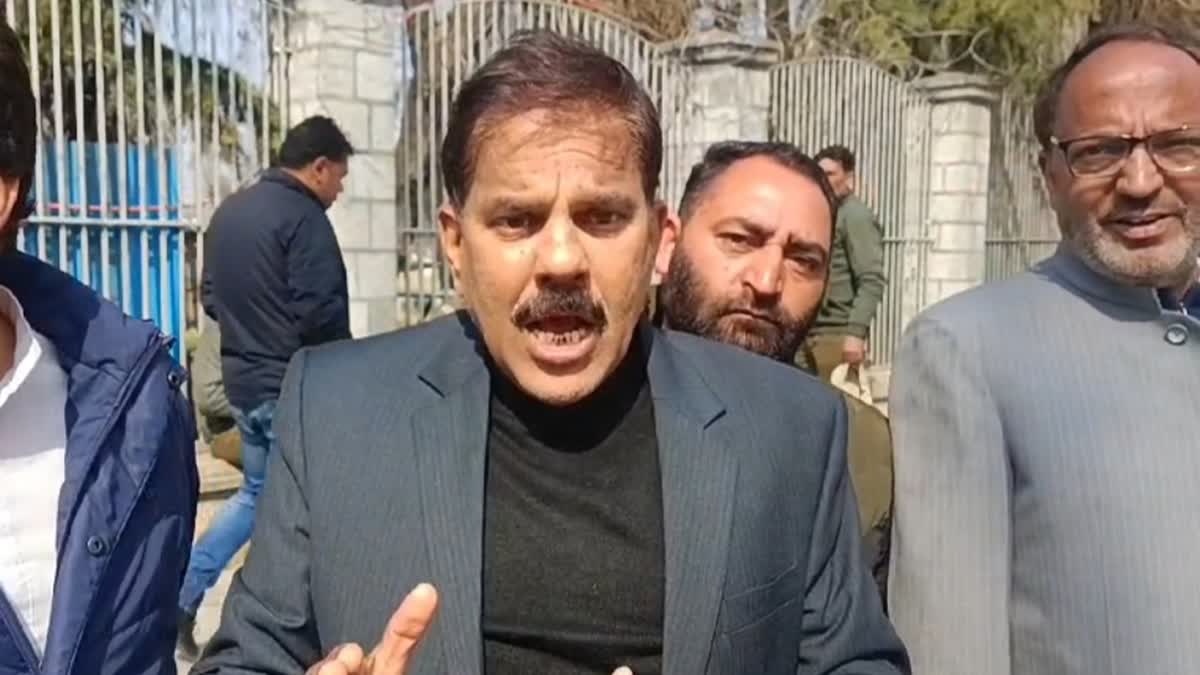Srinagar (Jammu and Kashmir): The Election Commission of India (ECI) , which is on a two day visit to Srinagar for reviewing preparations for parliamentary elections, today did not allow opposition Panthers Party for the meeting, party President Harshdev Singh alleged here.
Panthers Party delegation president Harshdev Singh said that his party was invited by the ECI for a meeting today. Singh showed the invitation letter to the media but the Jammu and Kashmir police deployed at the venue of the meeting, SKICC, didn't allow them inside.
Singh, who is the president of Panthers Party was accompanied by its leaders Masood Andrabi and others to meet ECI.
Neither the ECI, nor the Jammu and Kashmir police or civil administration cited any reasons for denying Singh the meeting at the last hour.
Furious at the refusal, Singh lashed out at the BJP government and said that ECI "is working at the behest of the central government". He further alleged that the government had allotted quarters to the saffron party for establishing offices.
The ECI team is on a two day visit to Kashmir. Today the team headed by chief election commissioner Rajiv Kuamar met representatives of National Conference, PDP, BJP and CPIM.
The team also held meetings with deputy commissioners and SSPs of the 10 districts of the Valley.
On the eve of the Election Commission of India's visit to the valley, Jammu and Kashmir Director General of Police RR Swain on Monday March 11 said that the police and security forces are ready to conduct the parliamentary elections in peace and stability.
Regional political parties have been demanding holding of assembly elections in Jammu and Kashmir, which awaits a democratically elected government for the last five years now.
Assembly elections were held in the erstwhile Jammu and Kashmir state in 2014, after which PDP and BJP formed a coalition government. The coalition government ended on 8 June 2018 when the BJP withdrew support to the PDP.
Since 2018, President's rule has been in force in the region. On August 5, 2019, following the abrogation of Article 370, the central government divided the state into two union territories.



